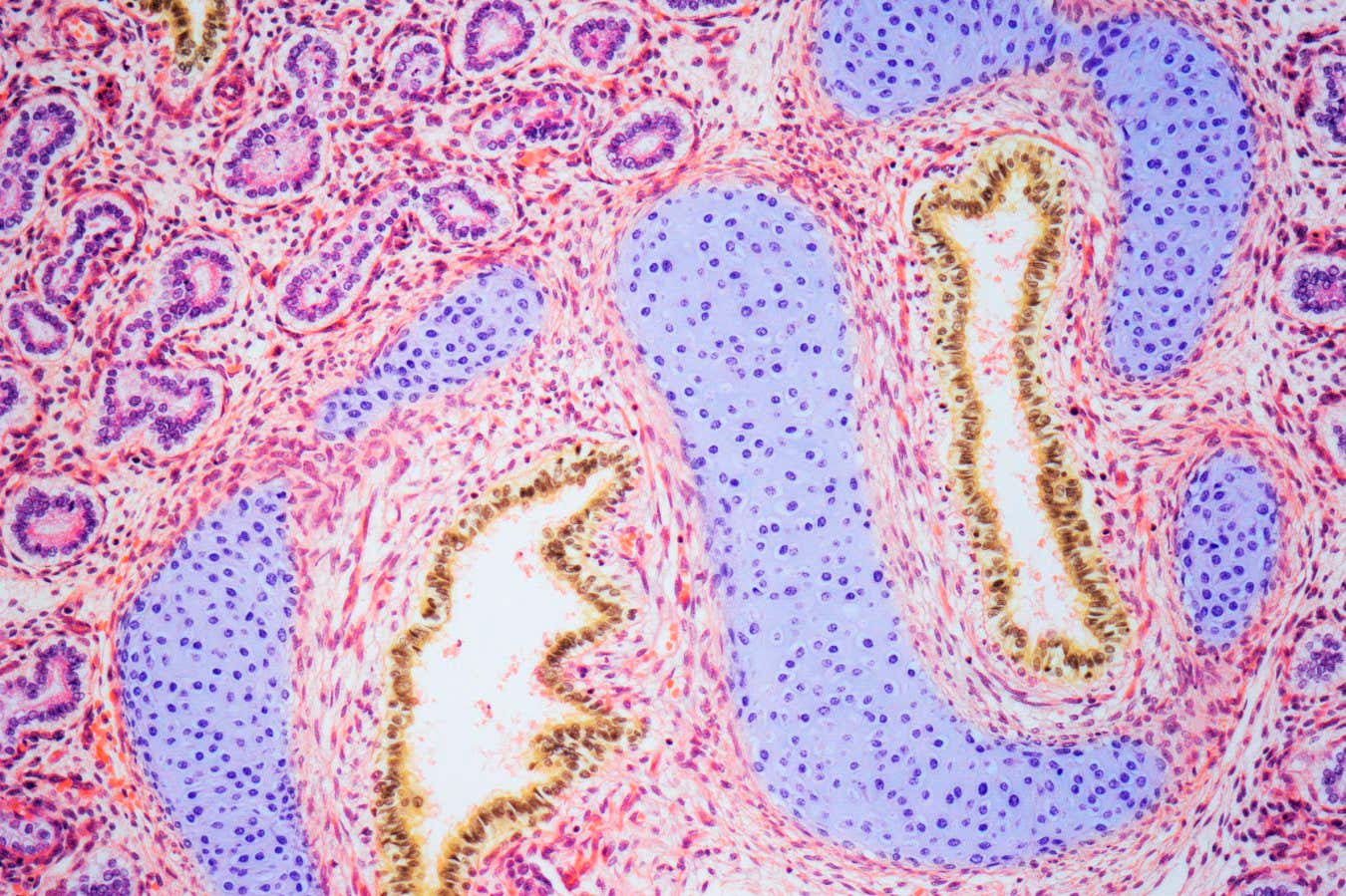Older cells may fail to make proteins or may make proteins that don’t function as they should, in a discovery that could lead to new drug targets to slow the ageing process
By Jason Arunn Murugesu
30 March 2023
Fetal lung tissue, which the researchers used to measure how gene expression changes as cells age
STEVE GSCHMEISSNER/SCIENCE PHOTO LIBRARY
Cellular ageing could be linked to genetic errors that arise over time, a finding that may bring us a step closer to identifying drug targets that slow the process.
Payel Sen at the National Institutes of Health in Maryland previously found that control over gene expression – the process of turning information that is encoded in a gene into a function – breaks down in yeast and worm cells when they stop dividing but still produce energy, known as senescent cells. In people, previous studies have shown that the number of senescent cells increases as we age.
To uncover a potential link between impaired gene expression and senescent cells in people, Sen and her colleagues took cultured lung cells from a donated human fetus and made them divide so frequently that they became senescent in three months, mimicking the ageing process.
Advertisement
The team then used a sequencing method called PRO-cap to analyse the lengths of newly formed RNA transcripts, which make proteins in a cell from a gene’s DNA expression.
The researchers found that these fetal senescent cells gave rise to very short RNA transcripts. These may then fail to make proteins or may make proteins that don’t act as they should, says Sen, who hopes to investigate this further in the future.
Increased variability in the gene expression that makes these short transcripts has been linked to ageing, but we don’t know what is going on, says Sen.
